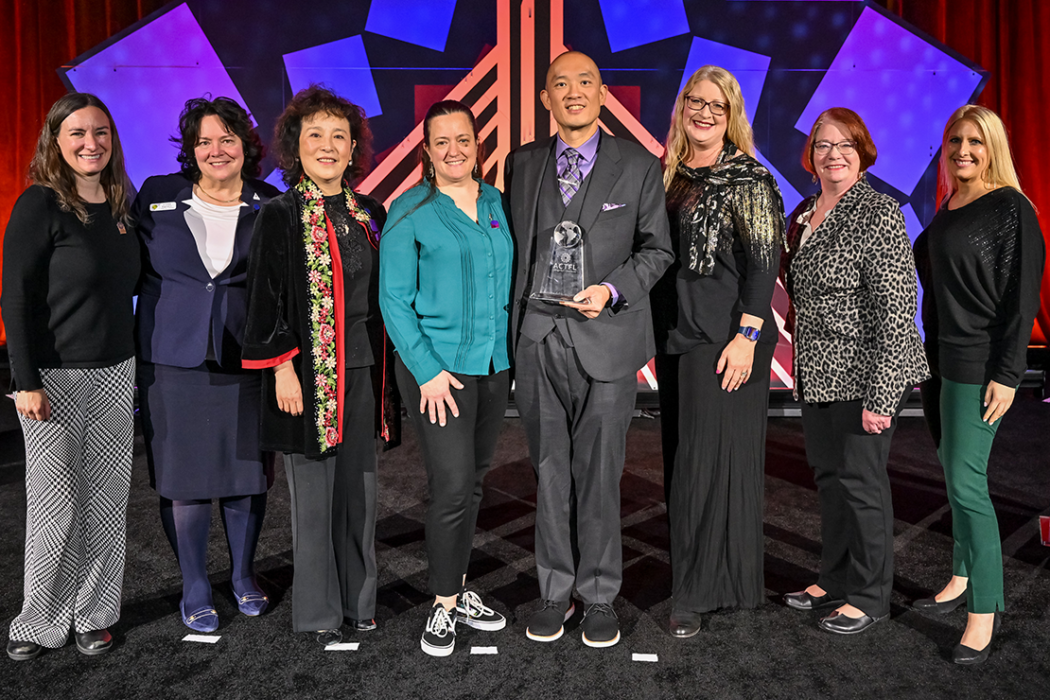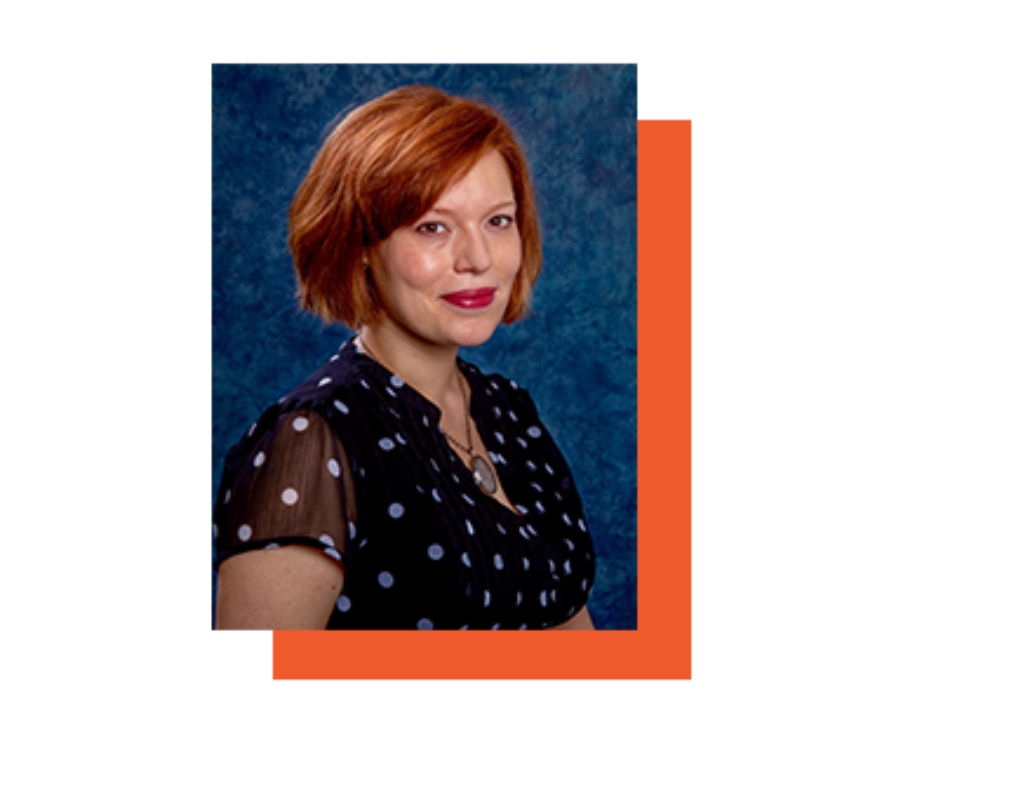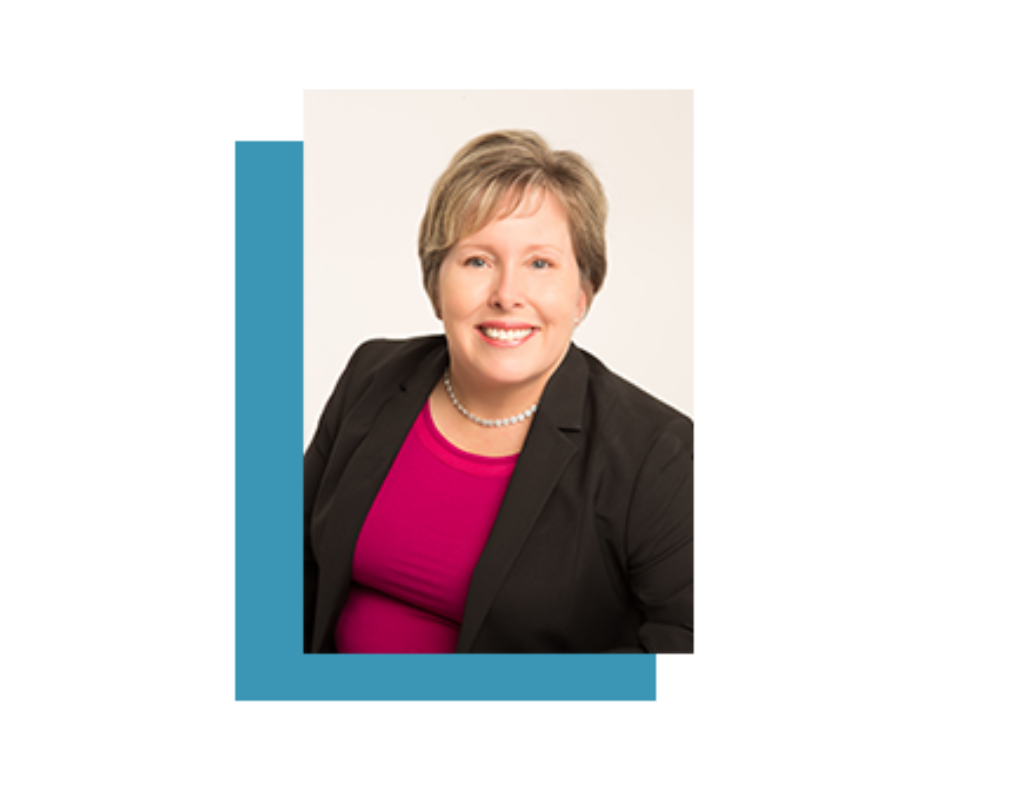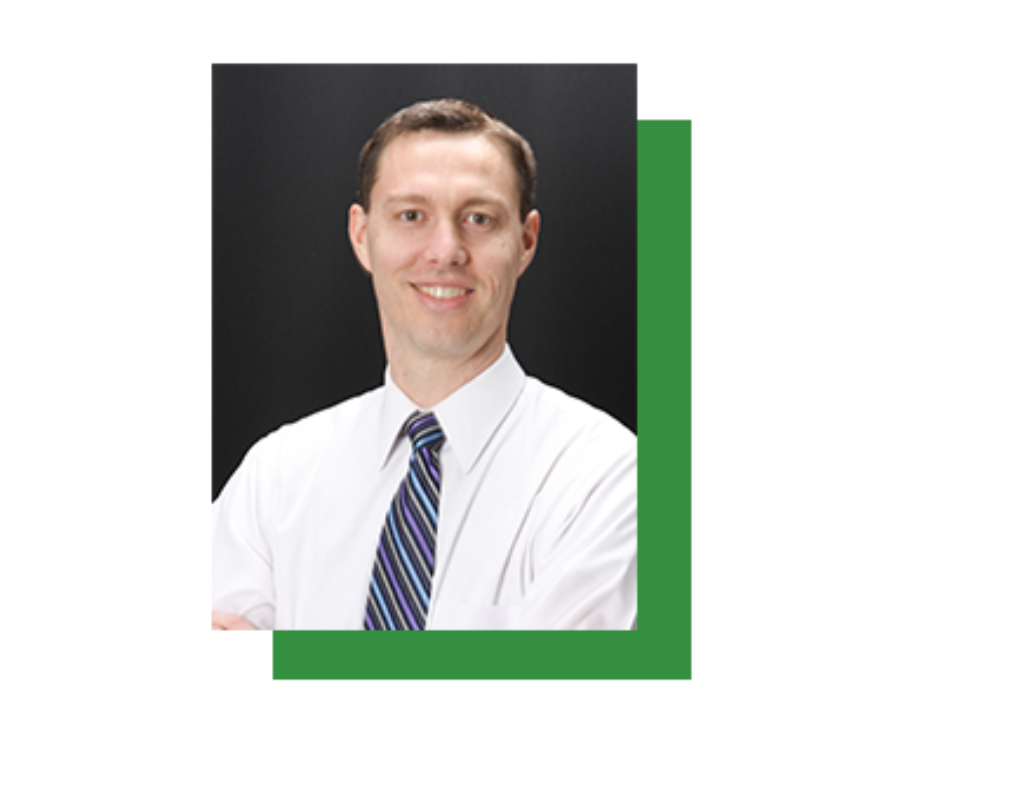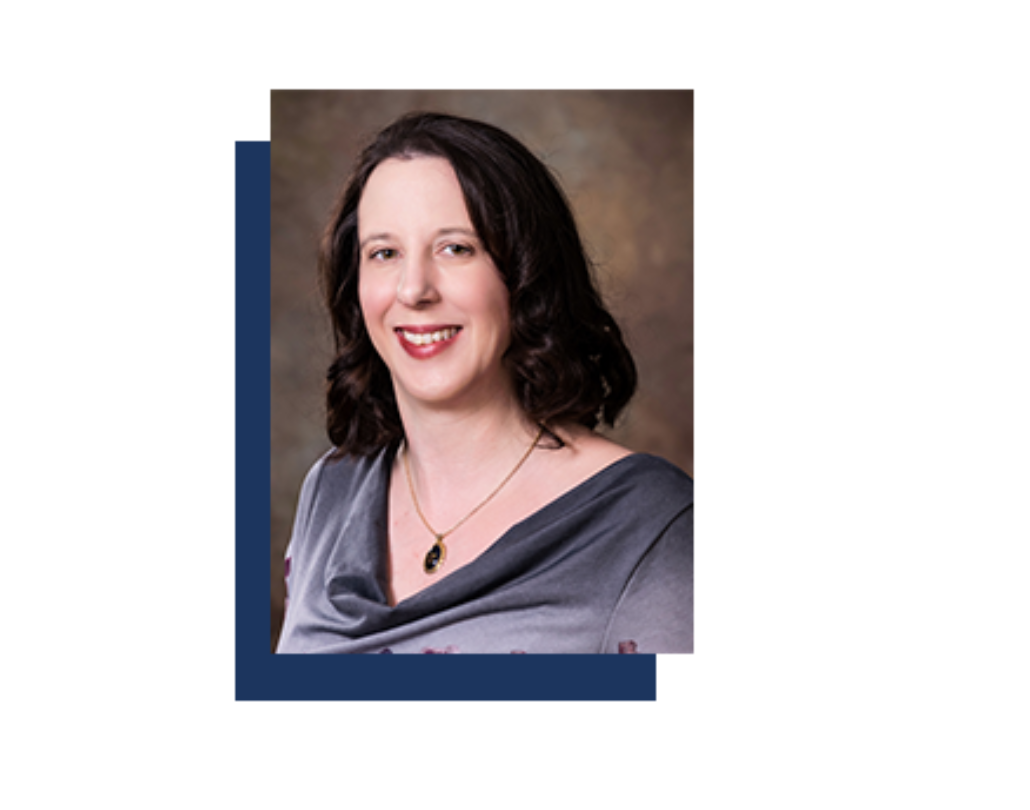2018 ACTFL National Language Teacher of the Year
Ying Jin
Cupertino High School, Cupertino, CA, SWCOLT, Chinese
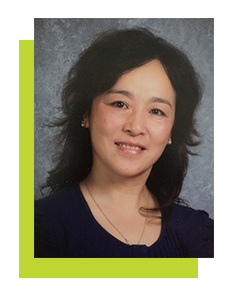
Nine years ago, I started my teaching career fresh out of graduate school. In my first year of teaching high school, I was assigned to Cupertino High School (63% Asian, 11% Latino, and 2% African American) and Fremont High School (32% Asian, 44% Latino, and 3% African American) in Cupertino, California. Most of my students were native speakers of English. Although I had been informed that I was about to experience a harsher reality than anything I had previously known, I still believed that teaching was a conventional profession and that I could leave my work at school and keep my personal and professional lives totally separate. I believed that I could instill the love of learning in my students and that they would somehow be able to forget all the societal challenges they faced in their lives. While most of the above did not materialized as envisioned prior to onset of my teaching career, I have persevered and still find teaching today as refreshing and energizing as the first day that I stepped into my first classroom.
Although I am convinced I received the best possible teacher preparation program, I have come to learn that teaching in itself is a constant evolutionary process. I clearly remember my first year of teaching being overwhelming, lacking direction and dealing with a surmountable level of stress. I desperately began to seek for any assistance I could find in my local area. Months later I stumbled upon the Stanford World Language Project (SWLP), a professional learning program especially designed to support teachers of world languages and cultures. Since discovering SWLP, I have become a committed member of this professional learning community and it has become the bedrock of my professional growth as both a teacher of Chinese language and culture as well as a member of the teaching profession. I have successfully completed all six professional learning strands offered by SWLP. The program tiers included Lesson Design, Unit Design, Technology, Assessment, Differentiated Instruction and Leadership Development.
A major challenge that I and believe many new teachers face is how to design and deliver effective, meaningful and relevant lessons on a daily basis that systematically move students into higher levels of linguistic proficiency and cultural competence. The SWLP Lesson Design program strand modeled the concept of Understanding by Design (backward planning), by showing how it functioned in world language teaching and how to plan lessons using this concept by setting the learning target and then by planning instructional strategies that support students through different stages in their learning and lead them to attain the desirable learning goal. This program provided me with a magic “toolbox” that was full of instructional strategies which I could apply in my next day teaching. In addition, the SWLP “Teachers Teaching Teachers” program design immediately put me in contact with a group of educators that had experienced every single one of the challenges that I was experiencing and as such motivated me to implement all of the instructional strategies that they were recommending. Now as I reflect on my experience in SWLP, I believe that I have learned as much from my colleagues who do not teach Chinese as I have from those who do. For example, when taking into consideration the special characters and features of the Chinese language, I have observed that, while some activities from Roman languages did not directly apply to my own Chinese language teaching context, they provided me with the opportunity to think deeply of how I could make them applicable; it was through this reflective thinking process that I feel I have grown the most as a professional educator and member of the world language teaching profession.
Another professional learning opportunity that has shaped me as a language educator was serving in the role of Cooperating Teacher for the Stanford Teacher Education Program since 2011. I have benefited greatly from the unique experience of mentoring a Teacher Candidate and reflecting jointly on instructional practices and learner performance that results from a specific instructional strategy. While sharing and modeling teaching practices, I have been reminded how important it is for the Teacher Candidates to be given the space to offer their ideas, have the opportunity to implement them, and then reflect on how impactful they were in supporting student learning. New ideas may not work in the first try; but by reflecting on what worked and what did not, we all benefit from the process and often a newly refined strategy emerges that works the next time and much professional learning has been accomplished in the process of generating new knowledge. The outcome of being a Cooperating Teacher provides me with a sense of renewal and professional growth that directly influences my future practices and impacts student learning.
The summer break is always the time I enjoy most in terms of professional growth and development. For the past nine years, I have had the opportunity to teach in several STARTALK programs. My biggest take-away is that STARTALK always challenges me to engage in high-leverage instructional practices that provide for maximum student performance. The practices range from using the target language almost exclusively, checking for understanding throughout the lesson, designing thematic units and lessons, and assessing for student performance in all three modes of communication - interpretive, interpersonal and presentational. The process of learning and implementing these instructional practices can be challenging; yet, it provides me with the opportunity to strengthen my pedagogical repertoire, and ensures that my practices translate into positive messages to all of my students that they all can learn the language and culture and to achieve real world purposes. Even though, I may feel physically tired after an intensive four week of program, I am mentally reinvigorated with new ideas and instructional approaches that I can employ in my regular academic-year professional assignment.
During the academic year, I also feel grateful to be surrounded by a group of eight talented and hardworking Chinese language teachers working in five different high schools within our school district. Three years ago, our school district encouraged teachers teaching the same subject to more closely collaborate with each other and develop a common curriculum. Through these collaborative efforts, we learn from each other’s knowledge and expertize and the outcome has been yet another source of professional growth for me as well as my colleagues. We have developed a common project and assessment rubric for Chinese IV Honor students in all five schools. Collectively analysis of the data and students’ work samples provides us with an in-depth understanding of students’ performance as well as a platform to reflect on how we can better support student learning in the future.
All of the above professional growth opportunities have shaped me into the language teaching professional that I am today and have had a profound impact on my students’ learning and performance. I attribute the successes from my Level I students to those who have obtained scores of 4s and 5s on their Advanced Placement (AP) exams to the professional growth opportunities that I have had the good fortune to participate in over the years. However, I feel that I still have much to learn and that as I grow professionally, so will my students in terms of linguistic and cultural competency.
